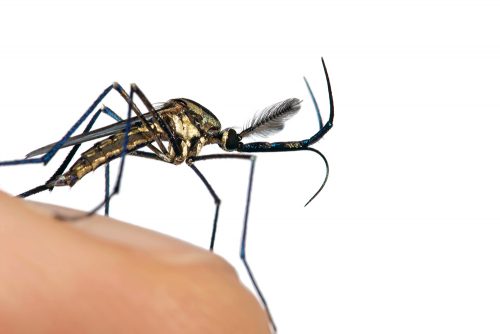GAINESVILLE, Fla. — The Florida Museum of Natural History’s new “Mosquitoes: Friend or Foe?” gallery exhibit offers an up-close look at one of Florida’s more underappreciated insects to highlight their beauty and importance.

Stunning images showcase the incredible diversity and rarely seen beauty of mosquitoes. Learn about their role in ecosystems, both as food and pollinators, as well as their life stages and anatomy and how they are affected by climate change.
“Swatting away mosquitoes in Florida is just second nature, particularly in summer when they are out in full force, but their redeeming qualities often get overlooked,” said Jonnie Dietz, Florida Museum exhibit developer. “This exhibit showcases how beautiful and complex their secret lives really are. They are an incredibly diverse group of flies with different behaviors, wildly different appearances and are important to ecosystems.”
In addition to their behavior, the gallery also reveals how different the various species of mosquito can appear. Macro images from entomologist Lawrence Reeves spotlights some of the 90 species that call Florida home. Other images display mosquitoes with different features like the elephant mosquito, which has a unique curved proboscis, and the paddle-legged mosquito, which have feathery legs.
Reeves began taking pictures of insects and other animals as a child and soon realized that photography can help people appreciate creatures they aren’t predisposed to liking, like mosquitoes. Now a scientist, he combines his passions to further conservation and a love for nature in people.
“I think mosquitoes are super interesting and a lot more ecologically important than given credit for — sentiments that are not shared by the majority of people,” Reeves said. “If someone can visit the exhibit and recognize the value in an insect as collectively spurned as the mosquito, I hope that they better appreciate and see the value in all insects — something we very much need given the concerns over global insect declines and the biodiversity crisis more broadly.”
Guests can also learn about mosquito research at the University of Florida’s Medical Entomology Laboratory, see the wide array of animals the insects feed on and discover how some mosquito species don’t bite humans at all.
While no end date has been set, the exhibit will be on display for the remainder of 2022. For more information, visit www.floridamuseum.ufl.edu/exhibits/mosquitoes.
-30-
Writer: Nikhil Srinivasan, 352-273-2034, nsrinivasan@flmnh.ufl.edu
Source: Jonnie Dietz, jdietz@flmnh.ufl.edu; Lawrence Reeves, lereeves@ufl.edu
Media contact: Kaitlin Gardiner, kgardiner@flmnh.ufl.edu